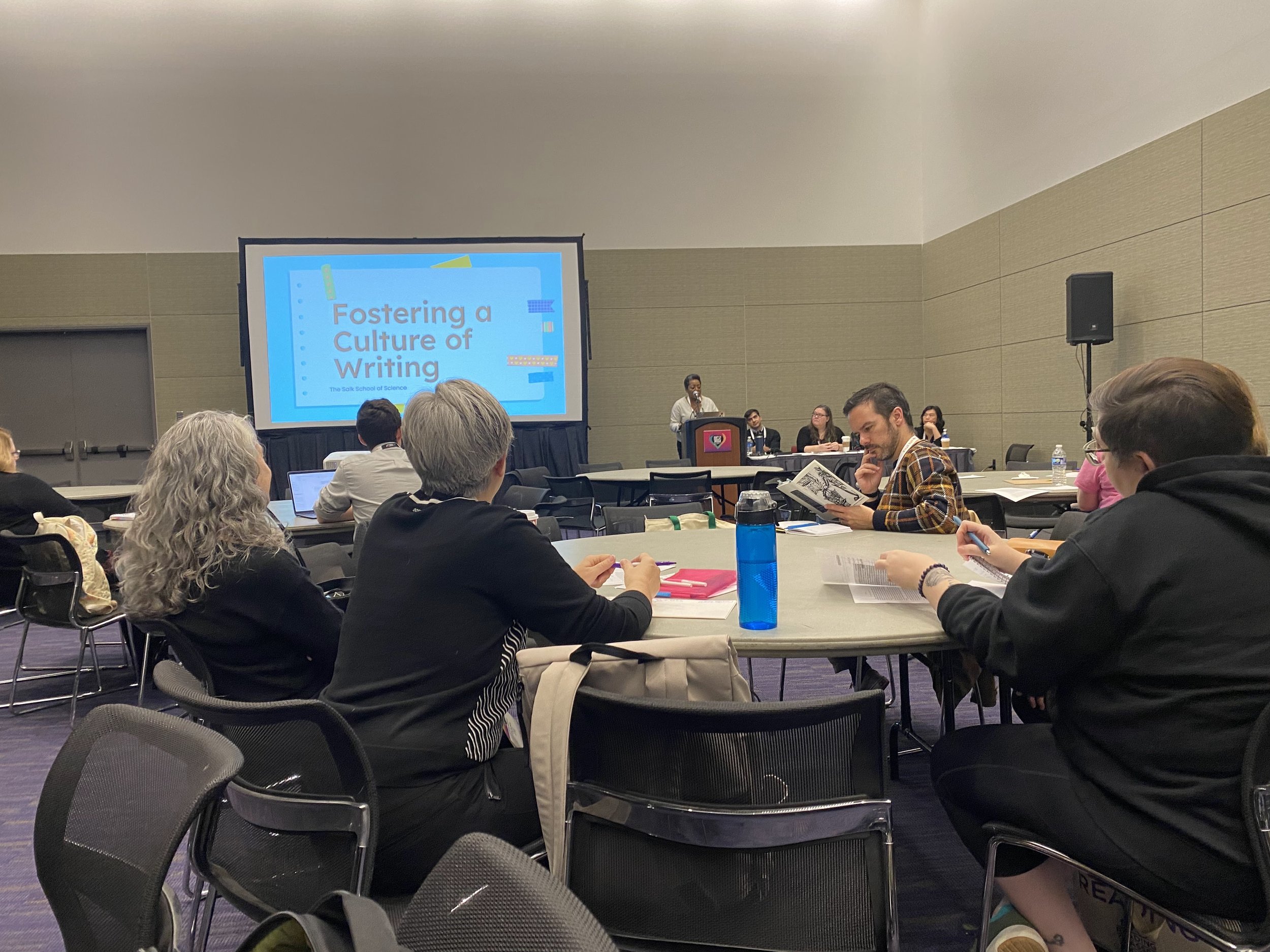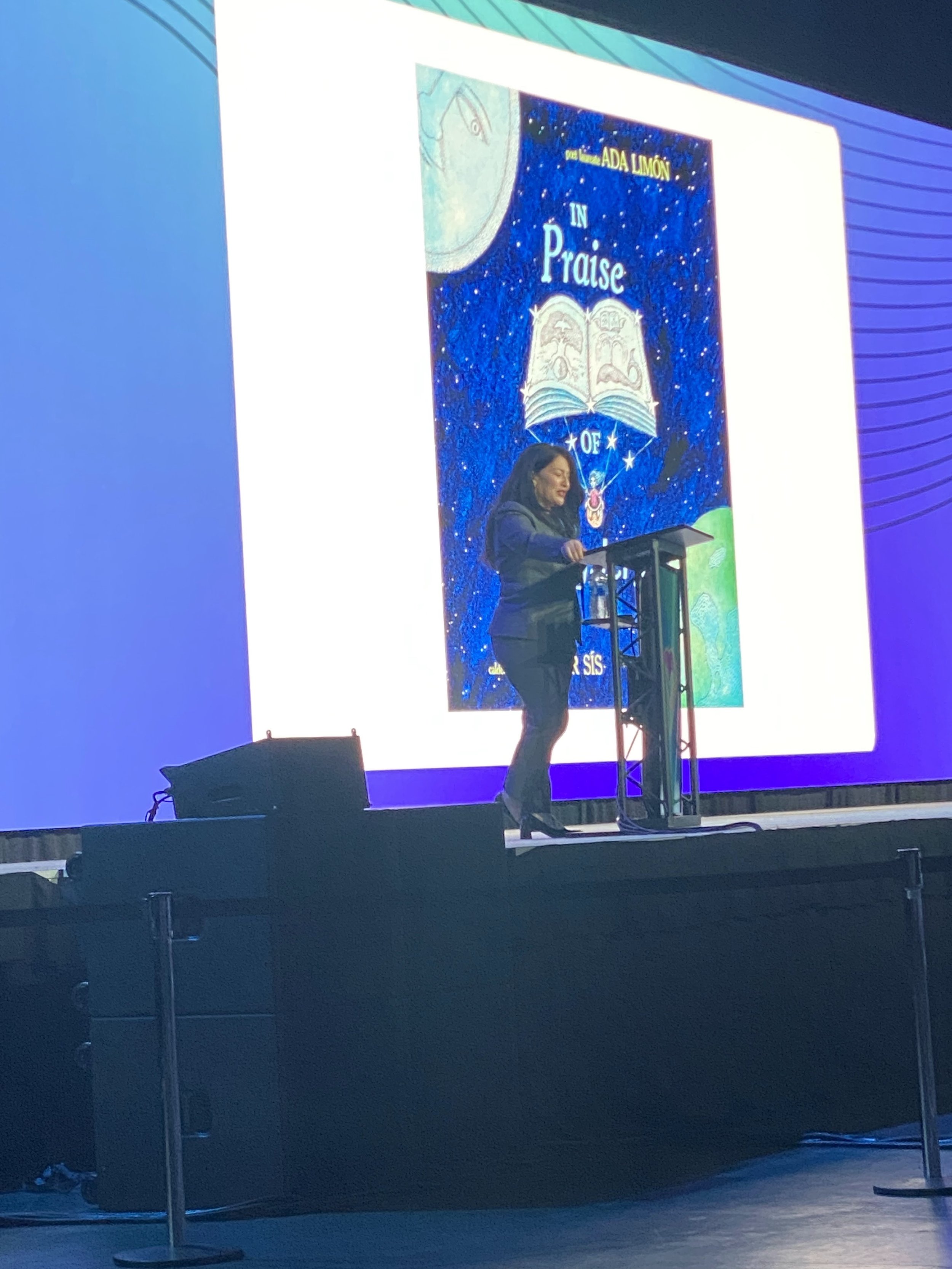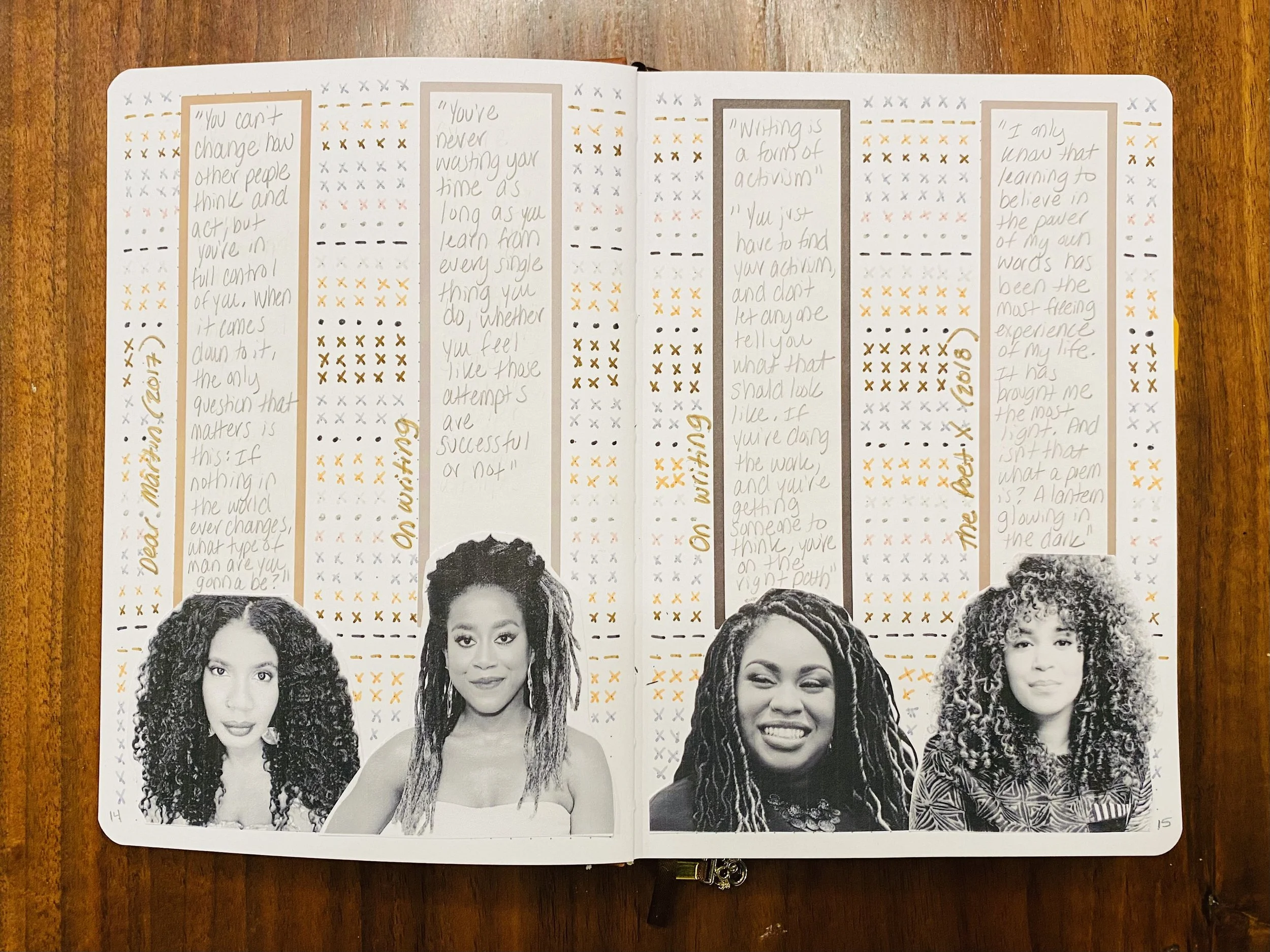Focusing on a New Path and Remaining Hopeful: Reflections from the 2024 NCTE Annual Convention
The National Council of Teachers of English (NCTE) Annual Convention never fails to inspire, and the 2024 theme—Heart, Hope, and Humanity—beautifully underscored every session I attended. From practical classroom strategies to profound reflections on identity and storytelling, the convention offered a wealth of insight and inspiration. There is something powerful about bringing together people who love learning, who love working with students, and who love teaching—it creates an undeniable sense of belonging.
My goal for 2025 is to ground myself in the meaningful work of teaching, even though I am no longer in the classroom. I seek direction, passion, and a renewed spirit for doing what I love. This post highlights key takeaways from the 2024 convention and includes personal reflections on what I hope to find in 2025—a deeper connection to heart, hope, and humanity in my work.
Recap of Sessions Attended
Session 1: Creating a Deep Culture of Writing in Secondary Schools
The Salk School of Science administration and staff shared their transformative practices for embedding a culture of writing across the school day. Their strategies emphasized:
Community Building: Writing thrives in spaces where students feel a sense of belonging. By fostering connections among students and between students and staff, the Salk School creates an environment where writing feels safe and celebrated.
Varied Writing Opportunities: Integrating writing into all subject areas ensures that students engage with diverse genres and purposes, making writing a daily practice rather than a periodic event.
Authentic Audiences: Providing students with real audiences for their work motivates them to take their writing seriously and see themselves as authors.
Session 2: Saturday General Session with Bryan Stevenson
Bryan Stevenson’s keynote was nothing short of powerful. He spoke eloquently about:
The Power of Identity: Understanding and reclaiming identity is central to transforming personal and collective narratives.
Staying Proximate: Engaging directly with issues and communities fosters empathy and actionable change.
Hope as a Discipline: Maintaining hope, even in the face of adversity, is essential for educators and advocates alike.
Embracing Discomfort: True growth requires us to step outside our comfort zones and confront hard truths with courage and compassion.
His message was a call to action for educators to be both storytellers and story-changers, shaping narratives that empower and inspire. I have added his book Just Mercy: A Story of Justice and Redemption back into my reading pile rotation to find renewed inspiration.
Session 3: Literacy Moves Outdoors: Five Approaches That Work Everywhere
Valerie Bang-Jensen’s session seamlessly connected literacy with the natural world. Her five practical approaches emphasized the flexibility of outdoor learning and its ability to:
Spark curiosity and wonder in students.
Integrate reading and writing with environmental awareness.
Foster deep engagement through sensory experiences.
This session resonated deeply with me, as it aligns with the Step Outside Grant Project I’ve worked on with Arizona State University. It reaffirmed my belief in the power of outdoor learning as a transformative educational tool.
Session 4: Enriching Readers' Lives with Nature-Centered Book Clubs
This session brought together renowned authors Lynne Kelly, Jewell Parker Rhodes, and Ann Burg to discuss how nature-themed literature can:
Deepen readers’ connections to the environment.
Inspire empathy and a sense of stewardship.
Provide students with diverse perspectives through compelling narratives.
The discussion highlighted the importance of integrating nature-centered texts into classroom libraries and curriculum to enrich students' understanding of the world around them.
Sunday Presentation: Step Outside! Discovering the Heart of K-12 Writing in Connection to the Outdoors
On Sunday, I had the privilege of presenting on the power of nature journaling in my session, Step Outside!. My focus was on how nature journaling serves as a dynamic writing-to-learn strategy that:
Encourages mindfulness and observation.
Engages students in reflective and creative writing.
Bridges the gap between indoor and outdoor learning spaces.
Sharing my experiences and hearing from attendees about their own successes and challenges was an enriching experience that reminded me of the collective strength of our teaching community.
Want to see our presentation? Canva View Link
Closing General Session with Ada Limón
Poet Ada Limón closed the convention with a captivating presentation of her works. Her poetry, brimming with raw emotion and vivid imagery, served as a reminder of the transformative power of language. She challenged us to:
Find beauty and meaning in the everyday.
Use writing as a tool for connection and healing.
Inspire students to see themselves as poets and creators.
Her words were a fitting conclusion to a convention centered on heart, hope, and humanity.
Exploring Around the Hotel
While attending the NCTE Annual Convention in Boston, I made sure to carve out some time to explore around the hotel. One of the highlights was visiting the Isabella Stewart Gardner Museum, where I wandered through its stunning courtyard and looked at the collection of art and artifacts. My favorite spot was a little writing desk. The museum’s atmosphere was a perfect complement to a weekend filled with learning and reflection. For a quick bite on the last morning, I stopped at Tatte Bakery, indulging in a breakfast sandwich and a latte before walking over to the convention. I also got a chance to walk over to Yankee Lobster for some delicious shrimp tacos (Shrimp tacos may be my favorite meal, no matter where I am).
2025 Areas of Focus & Takeaways
Deepening Disciplinary Literacy Work
Literacy is not just for English classrooms—it is the foundation for learning across all subject areas. NCTE reinforced the importance of disciplinary literacy, emphasizing how students need to engage with reading, writing, and thinking like experts in each field. Moving forward, I want to bring this focus to my blog and my work with teachers, providing strategies that help educators integrate writing practices across disciplines. Writing can be a tool for discovery in every subject, and I want to support teachers in making that shift in their classrooms.
Book I Recommend: This Is Disciplinary Literacy: Reading, Writing, Thinking, and Doing . . . Content Area by Content Area by ReLeah Cossett Lent
Clarifying My Professional Direction
One of my biggest personal reflections from the convention is the need for a clear path forward. Am I leaning toward teaching at the post-secondary level, or is my passion best served by sharing my knowledge through writing, consulting, and professional development? NCTE reminded me that meaningful work takes many forms, and my challenge in 2025 is to define the direction that best aligns with my goals and values. I want to be intentional about my next steps and embrace the path that allows me to share my expertise in the most impactful way.
Book I Recommend: The ONE Thing: The Surprisingly Simple Truth About Extraordinary Results by Gary Keller and Jay Papasan
Writing to Learn: A Path to Community
Writing has always been a powerful tool for personal growth, reflection, and learning. At NCTE, I was reminded that writing-to-learn strategies help students and educators alike find their voices, build understanding, and create stronger learning communities. I want to continue advocating for these practices—not only as an instructional tool but as a means of fostering connection, engagement, and critical thinking in every learning space. Writing is not just a product; it is a process that deepens thinking and strengthens our ability to communicate and collaborate.
Book I Recommend: Write Now & Write On, Grades 6-12: 37 Strategies for Authentic Daily Writing in Every Content Area by Rebecca G. Harper
Finding Joy in Education as a Thematic Focus
The theme of Heart, Hope, and Humanity reaffirmed the need to center joy in all aspects of teaching and learning. Education can be overwhelming, but joy is what sustains us. Whether it's through journaling, collaboration, or professional growth, I want to renew my commitment to joy—both for myself and for the educators I work with. In 2025, I aim to bring joy into discussions about literacy, planning, and professional learning, making it a core focus of my work and writing.
Book I Recommend: Unearthing Joy: A Guide to Culturally and Historically Responsive Curriculum and Instruction by Gholdy Muhammad
Final Thoughts & Commonplace Journaling
Throughout my journey as an educator and writer, journaling has been my anchor—a space for processing ideas, reflecting on experiences, and setting intentions. NCTE reinforced the importance of this practice, not just for students, but for educators as well. In 2025, I will continue using journaling as a means of self-reflection, helping me stay grounded, intentional, and open to new possibilities.
One specific practice I want to deepen is commonplace journaling, a method of collecting meaningful quotes, insights, and ideas from books, articles, and daily experiences. This practice allows me to engage with knowledge in a personal and reflective way, making connections between my work, my learning, and my evolving goals. By incorporating commonplace journaling alongside my personal reflections, I hope to create a rich repository of inspiration—one that informs my writing, teaching, and professional growth.
By making reflection and commonplace journaling regular parts of my practice, I aim to deepen my understanding of my work, refine my goals, and stay connected to my purpose.
>> Read more about how I use a Commonplace Journal to capture ideas and inspiration here
The NCTE Annual Convention is always a source of renewal and inspiration, and this past year was no exception. Each session offered valuable insights into the ways we, as educators, can use writing to foster connection, resilience, and growth in our students. I leave this year’s convention with a renewed commitment to bring heart, hope, and humanity into my teaching practice—both inside and outside the classroom.























































